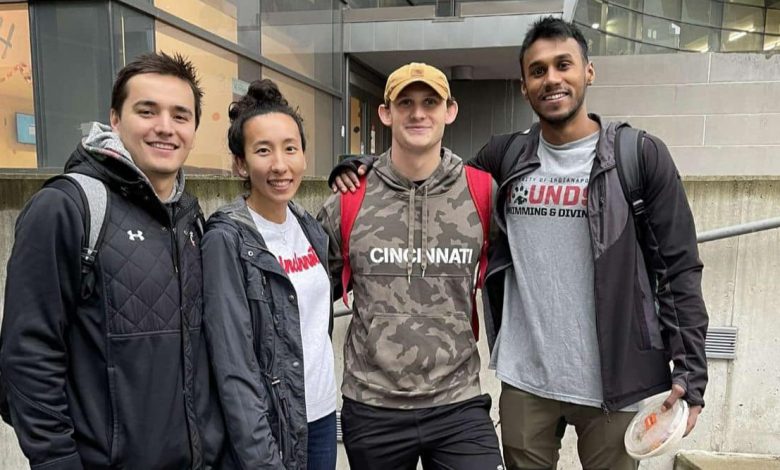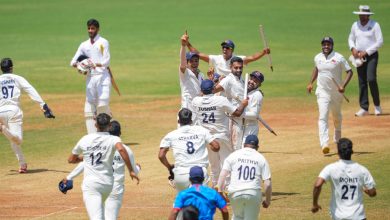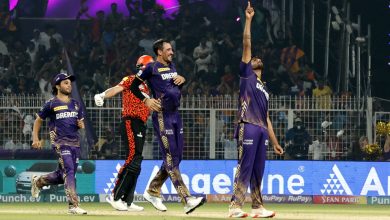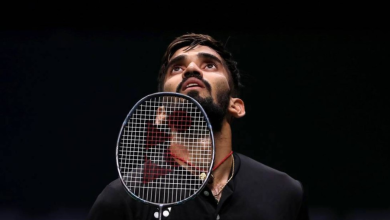‘It’s a vindication’: Indian swimmer SP Likith reacts to five-year ban on two Uzbek adminrators for cheating scores | Sport-others News

Back in 2021 when Indian swimmer SP Likith complained that local officials at the Uzbekan Open had manipulated results to help home competitors qualify for the Tokyo Olympics, he was called a liar. Last week, Likith came to know that the world aquatics body, following an investigation, had handed the Uzbek officials a five-year suspension.
The crucial evidence that vindicated the Indian swimmer was provided two US-based Uzbek swimmers, who also helped Likith land a full scholarship with the University of Indianapolis where he pursued an MSc in Strategic Leadership and Design. The time spent on the highly-competitive NCAA Division 2 circuit helped Likhit win the Nationals with a timing of 28.31 seconds and also qualify for the Asian Games where he will compete in the 50m breaststroke.
Recalling the tumultuous days when there was no one who believed him, Likith says, “It is a vindication, a win for athletes, and a first step to clean up the system, because I’m sure many such illegal practices happen elsewhere too. When I look back, I never regretted what I did even if many were against me and said I didn’t have to be impulsive. There was backlash – the Uzbeks said whatever I was saying was a lie – and it affected my mental health and I went down a spiral when I often thought ‘Should I not have done this’? But it made the noise it had to.”
Likith calls it a crucial moment of his life, which forced him to contemplate many things. “There were many around me who spoke ill, and told me I should’ve waited and not done it. There were people waiting to stamp me down, and I let that affect me. They called it ‘drama’ saying I’d been rude and didn’t treat officials with respect. But when I look back and ask myself if I regret it, the answer was always ‘No’.”
His rationale for protesting and putting out a video immediately had been years of hard work and struggle. “My mother had worked so hard for my career. But if there was going to be no fair play, what was the point of swimming?” Likith questioned.
His family and friends warned him that it would affect his career. “They said people will pull you down. ‘Why are you bringing this upon yourself and digging your own grave?’ they would ask. My parents though were rock solid, and at the end of the day, are proud of what I did,” he says.
Though he was forced to apologise back then, Likith didn’t receive any apology last week after news of the ban on Uzbek officials filtered in. “I wasn’t expecting anything, to be honest. I’m just happy it was proven that athletes have a voice. I’m sure such incidents happen and I hope this offers some inspiration to stand up for yourself and stand your ground.”
Pleasant surprise
Likith though was stunned to find support from very unexpected quarters: Uzbek swimmers Murat Sagdullaev and Yulduz Kuchkarova.
“I was very surprised. But once the incident happened, I received help from the two Uzbek swimmers who were then at the University of Cincinnati in getting inside data of previous meets. They asked me about my plans ahead, and told me they had contacts in Division 2 and with my experience, I could compete there,” Likith recalls.
“They helped me in tackling the situation. Then Anthony Ervin (four Olympic medals, including 50m free gold at 2000 Sydney Games and two World Championship gold), president of the athletes commission, DMed me and supported my cause along with other American coaches. I built a positive resume after what happened and ended up with the best two years of my life at Indianapolis, swimming in the States,” Likith, who is back in Bengaluru now, states.
His two years racing in Division 2 of the NCAA offered a balm. “The sporting culture there is totally different, and the team spirit is so good. There isn’t so much hate and jealousy there as in India, or it’s fuelled into performance in the pool. Here you are isolated and everyone is fighting bitterly. There were 21 competitions, one every two weeks, and every member of the team was there on the deck cheering for you, which drew out that 1 percent extra performance.”
Likith would finish his Masters, and return to India reluctantly.
Focusing on swimming and improving his aquatic performance wasn’t tough. “The reason why I did this was because I was so focused and determined. It wasn’t difficult to steer on that path again. I had certain goals. Once I stood up for those and did right for others too, that fuelled me more to get back on track. I realised aquatic-wise, I had a much stronger voice,” he says.
As for the two Uzbek athletes, he would end up meeting them in person when he competed against their university, racing against their college. “The girl became eligible to go for the Tokyo Olympics after what happened and the meet results were declared null and void. But she was given only four hours’ notice to be back in Uzbekan and report there, so she couldn’t go. She requested for an extension but didn’t get it. Still, a lot of good things happened overall,” Likith ends.







